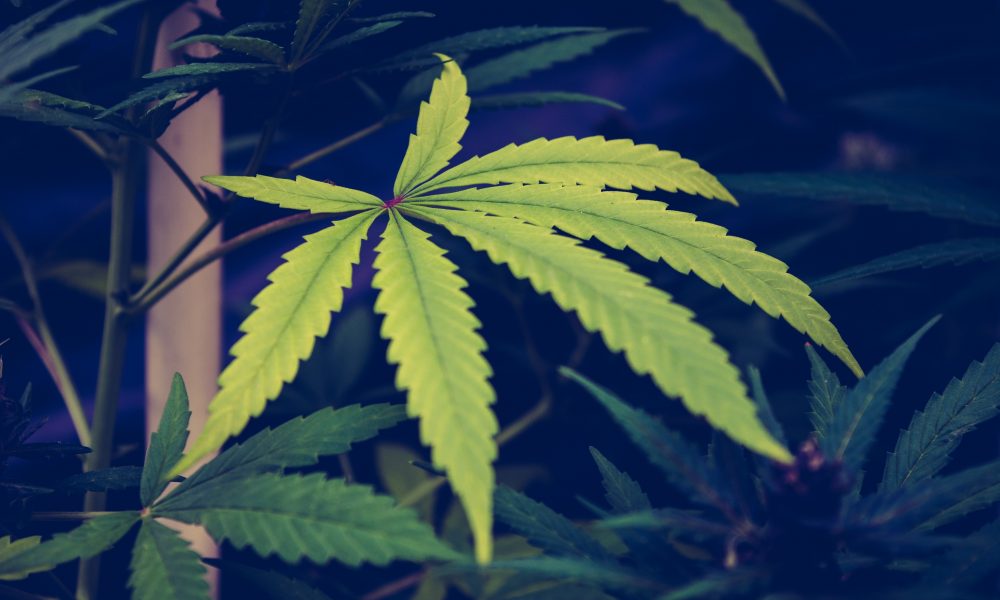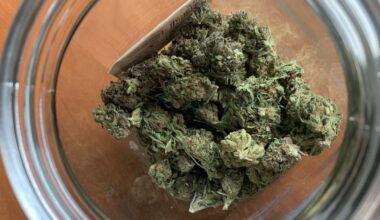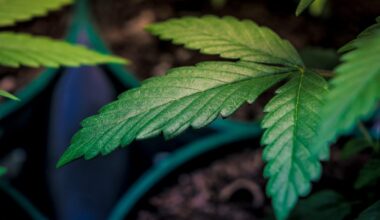Bipartisan Pennsylvania senators on Wednesday said they are introducing a bill to allow medical marijuana patients to cultivate their own plants for personal use.
Sens. Dan Laughlin (R) and Sharif Street (D) made the announcement about a month after unveiling a separate adult-use legalization proposal. This more modest reform would simply promote access by giving medical patients a home cultivation option.
“Since the passage of Act 16 in 2016, Pennsylvania’s medical marijuana (MMJ) program has offered lifesaving medicine to communities across the Commonwealth,” the senators wrote in a memo seeking additional cosponsors for the soon-to-be-introduced bill. “However, there are still inefficiencies around MMJ that are well known, especially as it relates to cost and access.”
Letting patients grow their own medicine would “help ease the cost and accessibility burdens for this important medicine,” they said. “This legislation would go a long way towards helping everyday Pennsylvanians meet their health needs and ensuring everyone is treated equitably and fairly under Act 16.”
Today, @SenSharifStreet and I introduced our Medical Marijuana Home Cultivation Bill.
This will go a long way towards helping everyday Pennsylvanians meet their health needs and ensuring everyone is treated equitably and fairly under Act 16.
Read More: https://t.co/DbmBhETVF0
— Senator Dan Laughlin (@senatorlaughlin) November 17, 2021
Street had attempted to get the reform enacted as an amendment to an omnibus bill this summer, but it did not advance.
The senators argue that patients in particular are deserving of a home grow option, as some must currently travel hours to visit a licensed dispensary and there are financial burdens that could be alleviated if patients could grow their own plants for medicine.
“Pennsylvania’s MMJ Advisory Board and the state Health Department have mounting data illustrating significant disparities in accessibility,” Laughlin said in a press release. “Cost has likewise been a big burden for patients for quite some time.”
Meanwhile, the senators are also behind a much-anticipated bipartisan bill to legalize recreational marijuana in Pennsylvania.
They unveiled the nearly 240-page legislation in October, months after first outlining some key details back in February. It would allow adults 21 and older to purchase and possess up to 30 grams of cannabis, five grams of marijuana concentrate products and 500 milligrams of THC contained in cannabis-infused products.
—
Marijuana Moment is already tracking more than 1,200 cannabis, psychedelics and drug policy bills in state legislatures and Congress this year. Patreon supporters pledging at least $25/month get access to our interactive maps, charts and hearing calendar so they don’t miss any developments.![]()
Learn more about our marijuana bill tracker and become a supporter on Patreon to get access.
—
Meanwhile, Rep. Amen Brown (D) recently announced his intent to file a legalization bill that he’ll be working on with Sen. Mike Regan (R), who expressed his support for the policy change a day earlier.
Additionally, a separate pair of state lawmakers—Reps. Jake Wheatley (D) and Dan Frankel (D)—formally unveiled a legalization bill they’re proposing.
While each measure generally seeks and end to marijuana criminalization by creating a regulated, commercial model for cannabis, there are some provisions that make each piece of legislation unique. For example, the proposals vary in how they would approach taxes, revenue and social equity.
While these recent moves to enact reform in the GOP-controlled legislature are encouraging to advocates, a spokesperson for House Majority Leader Kerry Benninghoff (R) recently tempered expectations, saying that there’s “no significant support for the legalization of recreational marijuana in the House Republican caucus.”
Lt. Gov. John Fetterman (D), who is running for U.S. Senate, told Marijuana Moment in a recent phone interview that he’s optimistic about the prospects of reform with these latest proposals, though he acknowledged that there may be disputes between legislators over how tax revenue should be distributed.
Gov. Tom Wolf (D), for his part, has said that a bipartisan approach to legalization “would be a great thing. I think the time is right.”
Meanwhile, Philadelphia voters approved a ballot referendum this month, urging the state to enact legalization. The hope is that the local vote will further motivate the legislature to move ahead with legalization.
While broad cannabis legalization proposals have not moved forward in the Republican-led legislature, Pennsylvania senators heard testimony in September on a bill to protect medical marijuana patients from being prosecuted under the state’s “zero tolerance” DUI laws.
Sen. Camera Bartolotta (R) first introduced an earlier version of the bill in June 2020. She said at the time that the state needs to “ensure that the legal use of this medicine does not give rise to a criminal conviction.”
Months after the standalone reform legislation was introduced, the Pennsylvania House approved a separate amendment that would enact the policy change.
A Pennsylvania lawmaker also introduced a bill last month to expand the number of medical marijuana cultivators in the state, prioritizing small farms to break up what she characterized as a monopoly or large corporations that’s created supply problems.
Separately last month, a bipartisan coalition of Pennsylvania lawmakers introduced a bill that’s meant to promote research into the therapeutic potential of psilocybin mushrooms for mental health conditions such as post-traumatic stress disorder. That bill was scheduled for a committee vote this week but has been temporarily tabled to address technical changes being sought by the Health Department.
Outside the legislature, Wolf said earlier this year that marijuana legalization was a priority as he negotiated the annual budget with lawmakers. However, his formal spending request didn’t contain legislative language to actually accomplish the cannabis policy change.
Wolf, who signed a medical cannabis expansion bill in June, has repeatedly called for legalization and pressured the Republican-controlled legislature to pursue the reform since coming out in favor of the policy in 2019. Shortly after he did that, a lawmaker filed a separate bill to legalize marijuana through a state-run model.
In May, Wolf pardoned a doctor who was arrested, prosecuted and jailed for growing marijuana that he used to provide relief for his dying wife. That marked his 96th pardon for people with cannabis convictions through the Expedited Review Program for Non-Violent Marijuana-Related Offenses that’s being run by the Board of Pardons.
A survey from Franklin & Marshall College released last month found that 60 percent of Pennsylvania voters back adult-use legalization. That’s the highest level of support for the issue since the firm started polling people about it in 2006.
Medical Disclaimer:
The information provided in these blog posts is intended for general informational and educational purposes only. It is not a substitute for professional medical advice, diagnosis, or treatment. Always seek the advice of your physician or other qualified healthcare provider with any questions you may have regarding a medical condition. The use of any information provided in these blog posts is solely at your own risk. The authors and the website do not recommend or endorse any specific products, treatments, or procedures mentioned. Reliance on any information in these blog posts is solely at your own discretion.







